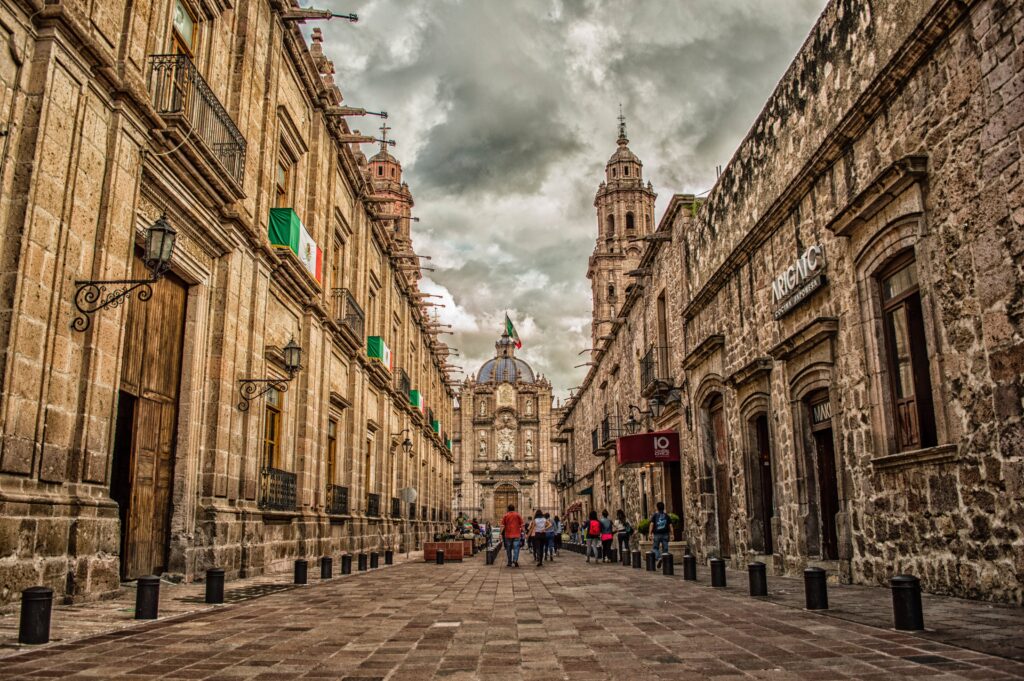Cardinal Arizmendi: The immigration challenge
They must be recognized, respected, promoted and defended

Cardinal Felipe Arizmendi, bishop emeritus of San Cristóbal de Las Casas and responsible for the Doctrine of Faith at the Conference of the Mexican Episcopate (CEM), offers Exaudi readers his weekly article titled “The migratory challenge.”
***
LOOK
Since I was a child, back in the 1940’s, several people from my little town emigrated. A few left to flee from ejidal conflicts of those times due to the exploitation of wood. Several more went to work in the United States, most without documents, and their quality of life has improved; almost all of them have built good houses in the community for their family and for themselves when they can come. Many have gone out to study or work in nearby cities. This migration, in general, has been beneficial for them and for my people. When the patron saint holidays arrive, or if there is any community need, they collaborate significantly.
When I served as bishop in Tapachula (1991-2000), some migrants passed through, not as many as now, especially from Guatemala, El Salvador and Honduras, and the diocese, long before I arrived, tried to assist them as much as possible, building shelters for them. Most of them used The Beast train, which in those years linked the Mexico-Guatemala borders. Hurricane Stan destroyed many railroad bridges, and that connection has since been suspended. So, the biggest challenge was the almost 55,000 Guatemalan refugees, who had fled the civil war in their country. Following what my predecessor did, they were helped not only with occasional assistance, but also by promoting them to have suitable jobs; we later accompanied them on their scheduled return to Guatemala.
As bishop in San Cristóbal de Las Casas (2000-2018), I had to attend to the migratory increase that intensified there, as many migrants tried to reach Palenque, where they could board the train that remained there, to try to reach the United States. How much suffering they lived! How they were extorted, exploited, and harassed, both by polleros and by immigration authorities! We did everything possible, and the diocese continues this service to so many brothers who do not stop trying to reach their goal.
Now the migrant caravans have increased so much that they have overwhelmed the dioceses, the aid agencies and the authorities themselves. They insist that the causes be addressed from their countries of origin. This is very correct, because if there is no safety and working conditions in the place itself, people will not stop, even if they put up more walls. However, this aid has not been enough. Due to pressure from the North American government, we have become a repressive country that expels undocumented migrants. It is a great challenge for everyone!
DISCERN
The bishops of the border between Texas and Mexico issued an important document about this reality. In the first part, they analyze the phenomenon with data. In the second, they make a deep discernment. In the third, they propose some recommendations. I transcribe some of what they say:
“Our Catholic perspective on migrants and refugees is rooted in Sacred Scripture and Sacred Tradition, with the guidance of the Magisterium of the Church. The Bible talks about the experience of migration. For example, the Book of Exodus says: “Do not mistreat or oppress a stranger, for you too were strangers in Egypt” (Ex 22:20). Joseph, Mary, and the baby Jesus temporarily immigrated to Egypt to escape the violent plans of King Herod (cf. Mt 2:13-23). Jesus himself teaches that, by welcoming the stranger, we are actually welcoming Him, who will say at the Final Judgment: “I was a stranger, and you welcomed me into his house” (Mt 25:35). Jesus visits us in the migrants, who become our traveling companions. In them, we receive as a guest the one who prepares a home for us in heaven, which is our homeland.
Throughout history, the Church, which like a mother has been attentive and solicitous to the problems of humanity, through its social doctrine has promoted and defended the natural and inalienable right that every human person has to migrate or not to migrate. It has also recognized the right of states to control their borders and the duty to welcome and ensure the rights of the migrant, who in turn must respect the material and spiritual heritage of the country that welcomes them, obey its laws and contribute to its development.
The Church teaches that every person has the right to find economic, political and social opportunities in their own country that allow them to achieve a dignified and full life. This requires that each country, through attentive local or national administration, guarantee more equitable trade and solidarity-based international cooperation, and ensure its own inhabitants’ freedom of expression and movement, as well as the possibility of housing and education”.
ACT
What to do? The same bishops propose: “Regardless of their legal situation, the life, dignity and rights of migrants must be recognized, respected, promoted and defended, as well as their respective duties. The Church reaffirms the priority need for a rule of law that protects families, particularly migrants and refugees, who are aggrieved by new difficulties. The State must be the guarantor of equal legislative treatment and, therefore, must protect all the rights of the migrant and refugee family, avoiding any form of discrimination in the areas of work, housing, health, education and culture.
A change in attitude towards immigrants and refugees is needed on everyone’s part, says the Pope, from a defensive and suspicious attitude, from disinterest or marginalization to an attitude that places the ‘culture of encounter’ as a foundation, the only one capable of building a more just and fraternal world, a better world. Jesus said: ‘I was a stranger, and you welcomed me’ (Mt 25:35). The invitation to practice a hospitality that cannot be limited to the mere distribution of humanitarian aid is current and urgent, but must lead to sharing with those who are welcomed the gift of the revelation of the God of Love, ‘who loved the world so much, who gave his only Son’ (Jn 3, 16).”
Related

Mercy in the Face of the Father: The Return of the Prodigal Son
Javier Ferrer García
02 July, 2025
3 min

Educating in the Faith: The Mission of Parents, Not the State
Laetare
02 July, 2025
3 min

Cardinal Arizmendi: The “Pride” of Being Gay
Felipe Arizmendi
02 July, 2025
4 min

Courage, Witness, and Truthfulness
Hugo Saldaña Estrada
01 July, 2025
2 min
 (EN)
(EN)
 (ES)
(ES)
 (IT)
(IT)

